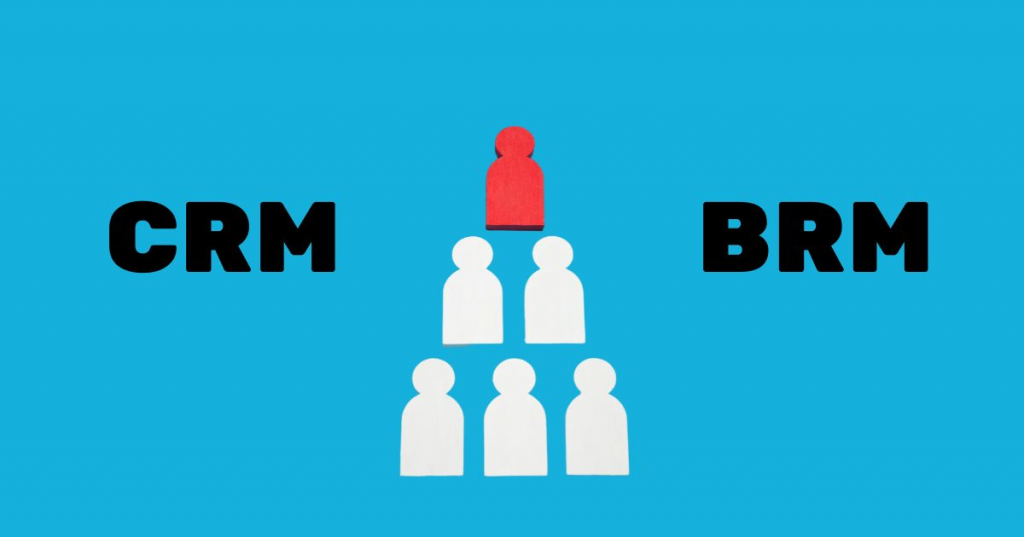Relationship Manager: Definition, Responsibilities & Salary
A relationship manager plays a pivotal role in the business world, acting as the bridge between an organization and its clients or customers. Their primary responsibility is to foster strong, lasting relationships that benefit both the client and the company.
In today's competitive market, the role of a relationship manager has become increasingly important as businesses recognize the value of maintaining and enhancing customer satisfaction and loyalty.
This article explores the essential facets of the relationship manager's role, including their responsibilities, the skills required to succeed, and the pathways to becoming a successful relationship manager. Additionally, it provides an analysis of the typical salary expectations for relationship managers in various industries and locations, with a particular focus on the Indian market.
What is a Relationship Manager?

Relationship Manager is a professional responsible for building and maintaining strong relationships with clients or stakeholders within an organization. They serve as the primary point of contact between the company and its clients, ensuring that client's needs and concerns are addressed promptly and effectively.
Relationship Managers work to foster trust, loyalty, and long-term engagement, often focusing on improving customer satisfaction and retention. Their ability to understand and anticipate client needs can lead to more tailored and effective solutions, ultimately contributing to the success and profitability of the organization.
The specific duties of a Relationship Manager can vary depending on the industry and the company they work for. However, the core concept remains the same: building and nurturing strong, mutually beneficial relationships that contribute to the overall success of the organization.
What are the 2 types of relationship managers?

There are generally two main types of relationship managers: client and business relationship managers. These roles focus on different aspects of relationships within a business context.
Client Relationship Manager (CRM)
Client Relationship Managers primarily focus on maintaining and enhancing relationships with a company's existing clients. Their main goal is to ensure client satisfaction, loyalty, and retention. They work closely with clients to understand their needs, address concerns, and identify opportunities for upselling or cross-selling additional products or services. Typical industries for CRMs include banking, wealth management, and sales. Their responsibilities often include:
Client Acquisition: CRMs might be involved in prospecting for new clients, establishing initial contact, and building rapport.
Needs Assessment: Understanding the client's specific needs, goals, and challenges is crucial. Client Relationship Managers conduct needs assessments, analyze past data, and have in-depth conversations.
Solution Development: Based on the client's needs, CRMs curate solutions and services tailored to their specific situation.
Account Management: They proactively manage existing client relationships, ensuring their satisfaction and identifying opportunities for further business. If possible, they will upsell or cross-sell relevant products or services.
Regular Client Interaction: Conducting regular meetings and communications with clients to understand their needs and gather feedback.
Problem Resolution: Resolving any issues or concerns clients may have in a timely and effective manner.
Client Onboarding: Assisting new clients with the onboarding process and ensuring they understand how to utilize the company's products or services effectively.
Service Optimization: Identifying ways to improve the client experience and suggesting enhancements to products or services.
Performance Tracking: Monitoring and analyzing client account performance to ensure satisfaction and identify areas for improvement.
Communication and Reporting: Regular communication with clients is essential. They keep clients informed, address concerns, and provide reports on progress or performance.
Business Relationship Manager (BRM)
Business Relationship Managers focus on relationships within the organization or with key business partners. They work to align the company's business objectives with its operational capabilities, ensuring that both internal and external partnerships are mutually beneficial and contribute to overall business success. Here are some of their key responsibilities:
Partner Identification: They may be involved in identifying potential business partners who align with the company's strategic goals.
Relationship Building: Building rapport and trust with key decision-makers within partner organizations is essential.
Partnership Development: They work collaboratively with partners to develop mutually beneficial agreements and ensure successful collaboration.
Communication and Negotiation: Clear communication and effective negotiation skills are crucial for establishing and maintaining strong partnerships.
Internal Collaboration: Facilitating communication and collaboration between different departments within the organization to ensure alignment with business goals.
Project Management: Overseeing projects that involve collaboration with business partners or other departments, ensuring they are completed successfully and on time.
Stakeholder Engagement: Engaging with stakeholders to understand their needs and expectations and ensuring these are met through effective collaboration.
Business Strategy: Contributing to the development of business strategies that leverage partnerships and internal capabilities to achieve business objectives.
Key Differences
In essence, both Client Relationship Managers and Business Relationship Managers are relationship-building experts.
Focus Area: CRM focuses on external client satisfaction and retention, while BRM focuses on internal alignment and external business partnerships.
Objectives: CRM aims to enhance client loyalty and drive sales growth, whereas BRM aims to ensure strategic alignment and optimize business operations through effective partnerships and collaboration.
Both types of relationship managers play crucial roles in the success of an organization by fostering strong, productive relationships, whether with clients or within the business ecosystem.
What does a relationship manager do?

A Relationship Manager is responsible for building, maintaining, and enhancing relationships between a company and its clients or business partners. Their role is crucial for ensuring client satisfaction, loyalty, and business growth.
Customer Support
Relationship Managers (RMs) invest time in understanding each client's unique needs and goals, offering tailored advice and customized solutions. They proactively communicate with clients, provide updates on products, services, and industry developments, and organize training sessions to help clients maximize the benefits of the company's offerings.
Banking: Building relationships with individual or corporate clients, managing their accounts, and providing financial advice.
Wealth Management: Providing investment advice and managing investment portfolios for high-net-worth clients.
Sales: Developing relationships with potential customers, understanding their needs, and presenting products or services that address them.
Relationship Managers maintain regular contact with clients through meetings, phone calls, emails, and other communication channels. They gather feedback from clients to understand their needs, preferences, and areas for improvement. This ongoing engagement ensures that the clients feel valued and heard.
During crises, RMs act as liaisons, providing clear communication and managing expectations. Their efforts in maintaining detailed client records and analyzing data help identify trends and opportunities for service enhancement.
Ultimately, Relationship Managers focus on client retention by developing loyalty programs and fostering long-term engagement, ensuring clients receive the best possible experience and remain committed to the company.
Sales and Upselling
Recognizing and pursuing opportunities to sell additional products or services to existing clients is another critical aspect of a Relationship Manager’s role. They suggest relevant products or services that could benefit the client based on their specific needs, thus driving additional revenue for the company.
Account Management
Relationship Managers oversee client accounts to ensure services are delivered as promised and performance metrics are met.
In terms of performance tracking, Relationship Managers provide clients with regular updates on their account status, using data and metrics to highlight key achievements and areas for improvement. They work closely with internal teams, coordinating efforts and advocating for client needs to ensure a cohesive approach to account management.
Managing account renewals and implementing retention strategies are essential to maintaining long-term client relationships. Relationship Managers use negotiation skills to secure favorable terms for the client and the company.
Relationship Building
Developing and maintaining trust and loyalty with clients through consistent, reliable, and high-quality interactions is vital. Relationship Managers provide personalized service to each client, ensuring their unique needs and preferences are met, which helps build long-term relationships. So, strong communication and interpersonal skills are crucial for building lasting relationships.
Market Insights
Relationship Managers use market insights to provide clients with informed advice and solutions, helping clients navigate challenges and seize opportunities. So, an effective RM takes the time to understand their client's specific needs, goals, and challenges.
Insights include conducting needs assessments, analyzing past data, and having in-depth conversations with clients. Based on their understanding of the client's needs, the RM curates solutions and services that are tailored to their specific situation.
Strategic Planning
Relationship Managers develop strategies to enhance client relationships and drive business growth. They implement initiatives aimed at retaining clients and increasing their lifetime value to the company, contributing to the overall strategic objectives of the business.
Problem-Solving and Conflict Resolution
Inevitably, issues may arise. The RM acts as a liaison between the client and the company, working to resolve any problems or conflicts that may emerge.
The specific duties of a Relationship Manager can vary depending on the industry and the company they work for. However, the core concept remains the same: building and nurturing strong, mutually beneficial relationships that contribute to the overall success of the organization.
How to become a relationship manager?

Becoming a Relationship Manager involves a combination of education, skills development, and gaining relevant experience. Here is a step-by-step guide to help you on this career path:
Educational Background
While there's no single degree requirement, a bachelor's degree in a relevant field is generally preferred by employers. Consider business administration, finance, marketing, communications, or psychology. These programs provide a strong foundation in business principles, communication, and customer service, all essential for an RM.
Some employers may prefer candidates with a Master's degree in Business Administration (MBA) or a related field. An MBA can equip you with advanced business knowledge, leadership skills, and a broader understanding of the industry you're interested in.
Seek Certifications
Certifications can play a crucial role in establishing your expertise and credibility as a Relationship Manager. Here are some valuable certifications to consider: Certified Financial Planner (CFP), Certified Relationship Manager (CRM), or any industry-specific certification that can enhance your credibility and knowledge.
Pursuing these certifications can enhance your skills and knowledge and make you a more competitive candidate in the job market. They reflect your commitment to professional development and your dedication to providing exceptional service as a Relationship Manager.
Network and Build Connections
Networking and building connections are essential strategies for anyone aspiring to become a successful Relationship Manager. Here are some effective ways to expand your professional network and cultivate meaningful connections:
Networking: Join professional associations, attend industry events, and connect with professionals in the field. Networking can provide valuable insights, mentorship opportunities, and potential job leads.
LinkedIn: Maintain an updated LinkedIn profile and connect with industry professionals. Share insights and participate in discussions to increase your visibility.
Gain Relevant Experience
Gaining relevant experience to become a relationship manager is a structured approach to acquiring the necessary experiences:
Internships: Pursue internships during or after your studies to gain hands-on experience in client management and business operations.
Entry-Level Positions: Start with entry-level positions such as Customer Service Representative, Sales Associate, or Account Manager. These roles provide practical experience in dealing with clients and understanding their needs.
Apply for Relationship Manager Positions
These roles offer the opportunity to build relationships, develop strong communication skills, and play a key role in an organization's success. Here's a roadmap to help you craft compelling applications and stand out from the crowd:
1. Tailor Your Resume and Cover Letter
A well-crafted resume and cover letter can highlight your qualifications, skills, and experience in building and maintaining client relationships.
Highlight Relevant Skills: Carefully review the job description and identify the specific skills and experience they seek. Tailor your resume and cover letter to showcase your relevant qualifications, quantifying your achievements whenever possible.
Quantify Your Successes: Did you increase client retention by 20%? Did you exceed sales targets by 15%? The CV should include specific metrics to demonstrate your impact in previous roles.
Focus on Relationship Building: Highlight your strengths in communication, relationship building, and client service. Use action verbs to describe your past experiences, such as "developed and maintained strong relationships with key clients," "negotiated and closed deals exceeding targets," or "provided exceptional customer service, resulting in a 95% satisfaction rate."
2. Research the Company and Industry
Understanding the company's culture, values, and market position can help you align your application with their expectations and demonstrate your genuine interest in the role.
Show Genuine Interest: Take the time to research the company, its target market, and its products or services. Demonstrate your genuine interest in their mission and how your skills can contribute to their success.
Industry Knowledge: Understanding the industry landscape will allow you to speak intelligently during your interview. Highlight any relevant industry knowledge you possess.
3. Network and Leverage Connections
Networking is a powerful tool in securing a Relationship Manager position.
Inform Your Network: Let your professional network know you're seeking a Relationship Manager position. People in your network may be aware of openings or can provide valuable insights into the company culture.
Connect with Hiring Managers: Use platforms like LinkedIn to connect with hiring managers or recruiters at your target companies. It can help you get your application noticed.
4. Prepare for the Interview:
To prepare for the interview, follow these steps:
Practice Common Questions: Research common interview questions for Relationship Manager positions and practice your responses. Focus on highlighting your skills and experiences using the STAR method (Situation, Task, Action, Result).
Prepare Your Questions: Develop insightful questions for the interviewer to demonstrate your genuine interest in the company and the role. Ask about their expectations for the position, team dynamics, and growth opportunities.
Additional Tips:
Highlight Soft Skills: Relationship Managers need strong communication, interpersonal, and problem-solving skills. Provide examples from your past that demonstrate these skills.
Enthusiasm and Passion: Express your enthusiasm for the position and your passion for building relationships.
By following these steps, you can craft compelling applications and ace your interviews, increasing your chances of landing your dream Relationship Manager role. Remember, showcasing your relevant skills, genuine interest, and strong work ethic will set you apart from the competition.
Develop Essential Skills
To become a successful relationship manager, you should develop soft and hard skills to build, maintain, and enhance relationships with clients, partners, and internal stakeholders. Here are the essential skills you should focus on:
Communication Skills: Strong verbal and written communication skills are crucial. Relationship Managers need to clearly articulate ideas, negotiate effectively, and build rapport with clients.
Interpersonal Skills: The ability to build and maintain relationships, understand client needs, and handle conflicts diplomatically is essential.
Analytical Skills: Understanding and analyzing market trends, client data, and financial reports to make informed decisions and recommendations.
Sales Skills: A relationship manager understands sales techniques and the ability to upsell or cross-sell services to clients.
Problem-Solving Skills: The ability to identify client issues and develop effective solutions quickly.
Negotiation Skills: Negotiation is often an aspect of the RM role, particularly when discussing contracts or service agreements. Develop your negotiation skills by learning to communicate your value proposition, advocate for your client's needs, and find win-win solutions.
Continuous Learning and Development
Continuous learning and development are crucial for aspiring Relationship Managers to stay competitive and excel in their careers. Here are key strategies to enhance your skills and knowledge:
Stay Updated: Keep abreast of industry trends, new technologies, and best practices in relationship management.
Advanced Training: Pursue ongoing education and training opportunities to improve your skills and stay competitive in this field.
The path to becoming a Relationship Manager is a process of continuous learning and development. Focus on acquiring the necessary skills and experience, and don't hesitate to seek guidance from mentors or career counselors throughout your career. With dedication and perseverance, you can build a rewarding career as a Relationship Manager, fostering strong connections and contributing to the success of both your clients and your organization.
Relationship manager salary

Analyzing the salary of relationship managers in India involves considering various factors that influence compensation trends within the country:
Industry Segmentation: Relationship managers are employed across diverse industries such as banking, finance, insurance, IT, telecommunications, and retail. Salaries are based on the sector due to differences in revenue streams, client bases, and complexity of products/services. For example, relationship managers in banking and finance tend to command higher salaries due to the complexity of the financial products and services they handle.
Experience Levels: Salary levels typically increase with the level of experience. Entry-level relationship managers usually earn lower salaries compared to mid-level and senior professionals. As professionals gain experience and demonstrate proficiency in managing client relationships, they become eligible for higher compensation packages.
Geographical Location: Salary disparities exist between metropolitan cities and smaller towns or rural areas. Major urban centers like Mumbai, Delhi, Bangalore, and Chennai generally offer higher salaries to relationship managers due to higher living costs and increased demand for skilled professionals.
Skill Set and Performance: Strong interpersonal skills, sales acumen, relationship-building abilities, and proficiency in financial analysis are essential for success in this role. Exceptional performance and the ability to meet or exceed targets often result in performance-based bonuses and salary increments.
Company Size and Reputation: The size and reputation of the employer also influence salary levels. Established multinational corporations, leading banks, and financial institutions may offer more competitive compensation packages compared to smaller firms or startups.
Market Demand and Economic Conditions: Salary levels are influenced by market demand for relationship managers and prevailing economic conditions. During periods of economic growth and expansion, companies may offer higher salaries to attract and retain top talent, whereas economic downturns may result in salary freezes or reductions.
According to data from Indeed, the average monthly salary for a relationship manager in India is ₹29,741. This figure is derived from a comprehensive analysis of 2,800 salary reports submitted by individuals working in this role across the country. The data provides an insightful overview of the compensation landscape for relationship managers, highlighting the financial expectations associated with this profession in India.
Conclusion
Relationship managers are integral to the success of modern businesses, serving as key figures in maintaining and enhancing customer and client relationships.
As businesses continue to prioritize customer satisfaction and relationship management, the demand for skilled relationship managers is likely to remain strong, making it a promising career choice for those with the right skill set and dedication.
Becoming a Relationship manager is not an easy journey. Skilltrans is always ready to help you in your career path, you can register for our wide range of courses today.

Meet Hoang Duyen, an experienced SEO Specialist with a proven track record in driving organic growth and boosting online visibility. She has honed her skills in keyword research, on-page optimization, and technical SEO. Her expertise lies in crafting data-driven strategies that not only improve search engine rankings but also deliver tangible results for businesses.



